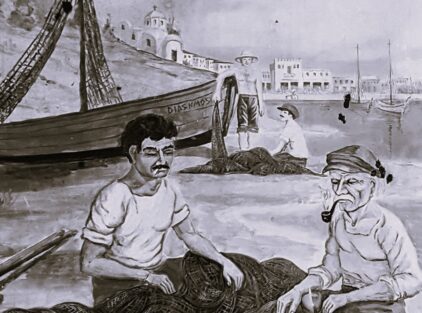By Christos Zampounis
On the other end of the phone line, as we used to say, when communications were wired, a voice with a Queen’s English accent asked me if I would be interested in writing an article about Mykonos. The timing coincided with a barrage of publications in the international press, following the unprovoked attack on the archaeologist of the Cyclades Antiquities Ephorate, Manolis Psarros. I replied in the affirmative, and the multi-page feature in the British review ‘The Tatler’ will appear in the July issue. A remark worth remembering. The monthly magazine under its present identity was published in 1901, although it has existed as a title since 1709. It is aimed at the upper classes of the United Kingdom, with readers being de facto potential visitors to the Windward Isle. As I write these lines, two and a half months have passed since the event and the developments that have taken place have been tumultuous. An extraordinary cabinet meeting involving seven ministers, the dispatch of about a hundred public officials, investigators, police, town planners and officials from the Ministry of Environment, autopsies, fines and demolitions.
We read daily in the domestic media about padlocks in famous beach-bars or even raids on villas for ticketed parties. The presence of the state on the Cycladic island with its 2,000,000 tourists a year is now strong, something that might not have happened if the perpetrator of the abuse of the archaeologist who handled dozens of construction cases was aware that we are not attacking the “holy places” of the country. “The antiquities in Greece are sacred. They are the core of the soul of modern Greeks,” I wrote, among other things, in the article. We should thank this “brain”, because without him, perhaps lawlessness would still rule in this earthly paradise, which became in the course of time the “embassy” of Mammon, the king of money, the “rich”, as John Chrysostom characteristically called them.













